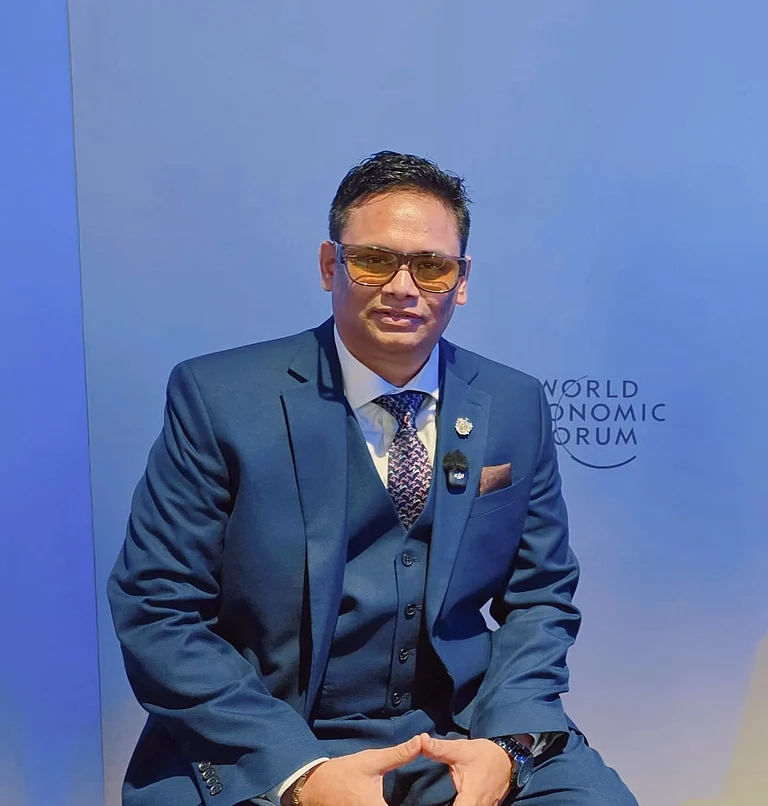The non-political Caretaker Government in Bangladesh cannot carry out itsmandated responsibilities without stirring a hornet’s nest or two. In the wakeof a rising political temperature, the members of the interim cabinet is facingjitters and challenges from the Awami League (AL) the most-recent ruling partyand the Bangladesh Nationalists Party (BNP)-led opposition. Even segments of thebureaucratic elite are complaining against the Chief Advisor’s "hasty andmotivated" changes in the civil service hierarchy. I fear that a band ofthese sharp reflexes may slide into belligerence and confrontation with thetriumvirate - the President, the Chief Advisor and the Chief ElectionCommissioner. But they cannot shy away from their responsibilities.
Escalating Volatility
The volatility over the coming elections that Bangladesh is facing now hasbuilt over the last several months. It started since Sheikh Hasina (Hasina),then Prime Minister, first toyed with the idea of an early election, but soonafter, made an about turn to stick to power until the wee hour of herconstitutional tenure.
Then there was a battle of dates over the exact date and time of transfer ofpower -12th , 13th, 14th or the 15th of July. For a while, Hasina wantedPresident Shahabuddin Ahmed (President) to wait for two weeks after 13th Julybefore ushering in the Caretaker Government. But the Bangladesh NationalistParty (BNP) demanded that the new Caretaker Government should come into force onthe night of the 12th July past mid night immediately after the Sangshad was todissolve under the rules.
The major casualty of the growing sensitivity, discontent and doubt was theswearing-in of Justice Latifur Rahman as the Chief Advisor of the caretakergovernment on the 15th July, when the opposition alliance led by the BNPboycotted the ceremony. The BNP was angry because the President, by yielding tothe outgoing Prime Minister to change the already agreed time and date of theevent, appeared to have belittled and underestimated the BNP and its partners inpolitics. But that did not stop the Caretaker Government from getting started,and in fact the BNP liked the initial steps of a major bureaucratic reshuffle,which the AL criticized.
Exceeding the Jurisdiction?
Justice Latifur Rahman, in turn, strongly refuted charges of exceeding hisauthority in the bureaucratic adjustments he made and, in addition, effectedfurther changes in different layers of administration by stages, most of whichwere detested by the AL.
Quite bluntly, the Awami League (AL) leader and the most recent premierSheikh Hasina (Hasina) charged the caretakers of favoring a "certain party".Although the BNP-led alliance was upbeat with the Chief Advisor’s first steps,its leader Begum Khalend Zia (Khaleda) regretted that most important positionswere still held by the pro-AL officers. She insisted that a fair election calledfor changing the overtly politicized sectors of bureaucracy lock, stock andbarrel.
A 13-memer AL delegation warned the Chief Advisor in not-so-veiled-terms thatthe temporary non-political authority had no jurisdiction to reverse decisionsearlier made by the elected government that just stepped down from power. Theynot only objected to the transfer of a number of top civil servants, but alsoresented the inclusion of one particular ex-civil servant and a highly respectedlawyer as advisors, and opposed the Chief Advisor’s readiness to appoint acommission on the political prisoners. Expectedly, both the members of theCaretaker Government denied the charges of partisan bias against them.
The Tables have turned!
Once out of office, a pall of gloom has descended upon the AL bigwigs whosetrappings of power evaporated on Friday the 13th July. Its grass roots workersand the front organizations are scared of being attacked by oppositionactivists, and even by angry mobs parading the streets. The AL has urged thecaretakers to give them adequate protection -- not any easy job given theillegal arms floating in the country.
Truly, both the AL and the BNP -- the leaders as well as the followers --suffer from biting testiness on the eve of elections, and both sides are cocky,which can easily embroil the caretaker government. Yet there are somequalitative differences between the two parties that also create problems forthe caretakers.
The BNP is sore with a perceived sense of injustice, harassment anddeprivation since 1996 for which its leader Khaleda is asking for a redress fromthe caretakers. One of her main challenges is to contain the cries of revengeamong the activists that brings her face to face with the Chief Advisor. Theinterim authority hesitates to go exclusively after one party to control itshoodlums since all the major parties allegedly nurture such elements.
But whatever the caretaker government does for improving the electoralclimate becomes an inquest against those who were in power lately. Whateversteps the caretakers take to change the status quo grab headlines; they arepotentially damaging for the ex-AL regime and its cohorts, which make the AwamiLeaguers edgy with the caretakers.
In 1996, the BNP, just forced to resign, had remained defensive -- KhaledaZia had apprehension about the caretakers although she crafted the interimsystem to extricate herself from the political turmoil. Now in 2001, the tableshave turned -- ensnared by the tumult of accusations, the AL is breathing fireagainst the caretaker government that was introduced in the constitution undertheir unyielding campaign against Khaleda in 1996.
A Looming Emergency?
Hasina has warned that the BNP and its associates, scared of losing theelections, are destabilizing politics so that an emergency is imposed upon thenation to put off elections. The allegation has implication for the interimauthority. Is she blaming the caretakers as the villains of her conspiracytheories?
Khaleda, in her turn, is blaming the AL for hyping emergency to put offelections. In the coming weeks, the caretakers may face a plethora ofallegations of pro-opposition bias from the AL although the BNP is also faultingthem for going slow on the depoliticization of the bureaucracy.
Well known as it is, the AL considers itself the "natural inheritor" ofpower in Bangladesh because of its presumed historical role in the independenceof the country --a ny challenger to its invoked position, including thecaretaker authority, offends it.
In the deadly competition of the coming weeks, the AL leaders will continueto suffer from the depressing sense of losing its most recent pivotal positionsince the caretaker government was installed. They are ready to turn the heatnot only on the BNP-led alliance, but also to directly attack the new caretakerswhose actions might undercut the electoral strategy that the AL leaders builtuntil their last hour in office.
Will the caretakers satisfy the opposition?
The BNP is asking the Chief Advisor to withdraw an estimated 50,000politically motivated cases against its party members including more than 200 ofsuch charges against four of its top leaders. How far would the interimauthority’s actions be acceptable to the opposition is an open question, butit is important for the BNP to know its own bottom line -- all of its 14-pointdemands are not likely to be fully met.
Meanwhile, the Chief Advisor has already warned that he would not bow to anyone-sided pressure, the best posture for a non-partisan stop gap leader. Withouta realistic appraisal of its sensitivity and expectation level, the BNP willalso run into confrontation with the Caretaker Government when the need of thehour is for all the major parties to show a spirit of understanding andcooperation.
Power Beyond the "Rudimentary Duties"
No doubt the caretaker cabinet is the executive fulcrum of the interregnum;for all the good reasons, it must enjoy all the necessary powers andresponsibilities. Otherwise, partisan groups and leaders armed with their ownagenda would try to delegitimize its authority in public eyes.
The caretakers should as much as possible refrain from heavily controversialand long term policy making except those necessary for a peaceful and neutralenvironment for election. Otherwise they have jurisdiction beyond the "rudimentaryduties" of state -- they can initiate substantive steps and do whatever ittakes for fair elections -- their ultimate constitutional responsibility.
It is not a narrow legal posture, but a steely confidence and a sharpinstinct for fair play that would work better. Most non-partisan observers arediscerning some stabilizing signs in one or two sectors of life. Both the mainparties will have to show their flexibility and lowertheir sensitive trajectory.
Beyond the partisanjealousies and passions, it is s a delicate position for the Chief Advisor -- heneeds to appeal to both the AL and the BNP-led opposition front. He would bewell advised to frequently express his position to the colliding groups andleaders, and the nation at large -- and keep the President and the ChiefElection Commissioner posted.
JusticeLatifur Rahman would do well to invite the party representatives at regularintervals to listen to their respective viewpoints, and urge them to restraintheir goons—he need not wait for them to come with war drums against hisactions. Both sides seem to want election although they may be fighting over thecircumstances of the poll—that’s a good omen on the horizon—against thebursts of gunfire and bomb blasts!
Finally,the caretaker government is not yet the hate-symbol of the partisans, and thenon-partisans—that’s another positive sign. The members of the non-partycabinet have possibly no better way than to learn to live with some of thepartisan discontents unless they detour towards a calamity. They cannot alwayssatisfy all sides—under the circumstance there is little prospect for that.
Partiesand politicians usually exaggerate their displeasure; I guess the Chief Advisorand his associates will have to tolerate a reasonable amount of partisanhyperbole.
M.Rashiduzzaman teaches Political Science at Rowan University, Glassboro, NewJersey, USA.
BangladeshStories From PTI

























